RUSSIAN NUCLEAR CHANGES
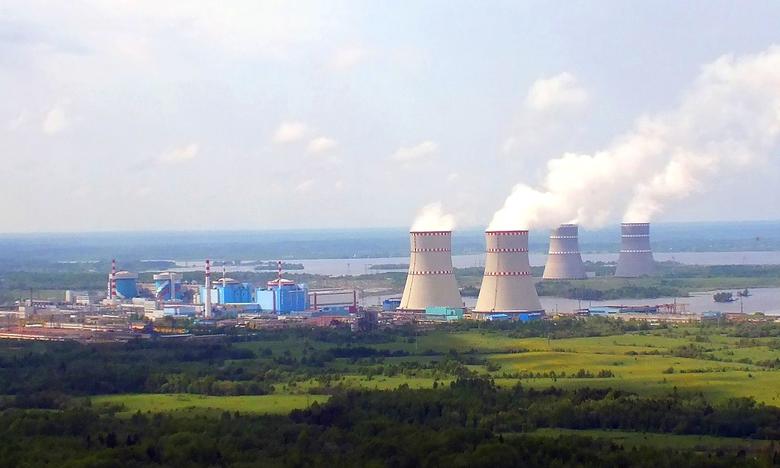
РЕЙТЕР -
-----
Раньше:

2018, March, 14, 11:45:00
REUTERS - U.S. West Texas Intermediate (WTI) crude futures CLc1 were at $60.77 a barrel at 0753 GMT, up 6 cents, or 0.1 percent, from their previous settlement. Brent crude futures LCOc1 were at $64.62 per barrel, down just 2 cents from their last close.
|

2018, March, 7, 15:00:00
РЕЙТЕР - К 9.17 МСК фьючерсы на североморскую смесь Brent опустились на 0,85 процента до $65,23 за баррель. Фьючерсные контракты на американскую лёгкую нефть WTI к этому времени торговались у отметки $62,07 за баррель, что на 0,85 процента ниже предыдущего закрытия.
|

2018, March, 7, 14:00:00
EIA - North Sea Brent crude oil spot prices averaged $65 per barrel (b) in February, a decrease of $4/b from the January level and the first month-over-month average decrease since June 2017. EIA forecasts Brent spot prices will average about $62/b in both 2018 and 2019 compared with an average of $54/b in 2017.
|

2018, March, 5, 11:35:00
РЕЙТЕР - К 9.28 МСК фьючерсы на североморскую смесь Brent поднялись на 0,33 процента до $64,58 за баррель. Фьючерсные контракты на американскую лёгкую нефть WTI к этому времени торговались у отметки $61,44 за баррель, что на 0,31 процента выше предыдущего закрытия.
|

2018, March, 4, 11:30:00
МИНФИН РОССИИ - Средняя цена нефти марки Urals по итогам января – февраля 2018 года составила $ 65,99 за баррель.
|

2018, February, 27, 14:15:00
РЕЙТЕР - К 9.18 МСК фьючерсы на североморскую смесь Brent опустились на 0,15 процента до $67,40 за баррель. Фьючерсные контракты на американскую лёгкую нефть WTI к этому времени торговались у отметки $63,80 за баррель, что на 0,17 процента ниже предыдущего закрытия.
|

2018, February, 27, 14:05:00
МИНФИН РОССИИ - Средняя цена на нефть Urals за период мониторинга с 15 января по 14 февраля 2018 года составила $66,26457 за баррель, или $483,7 за тонну.
|
RUSSIAN NUCLEAR CHANGES

N - 31 May 2023 - Rosatom will have to build 17 new NPP units by 2035 and decommission about 10 power units over the coming 10 years. This is a big challenge for nuclear scientists, Rosatom Director General Alexei Likhachev told reporters on sidelines of the Nevsky International Ecological Congress. "The President of the Russian Federation decided that it is necessary for nuclear generation to achieve 25% of [the total energy balance] in the 2040s. This is the first challenge - to increase the share,” However, he added that “at the same time, we will face a big challenge”.
He explained: “Over the next 10 years there will be around a dozen units, which will need to be decommissioned. These are RBMK units. Some of them may have their operating loves slightly extended, but the vast majority will have to be decommissioned, as they say, in real time. Therefore, we need to build 17 units by 2035." Likhachev said. Two of them are already being prepared – these are at the Kursk NPP. Two more units will be closed at the Leningrad NPP (two are already shut down), two at the Smolensk NPP, and later two more at Kursk.
Likhachev added: "We have a complete programme and understanding of the construction of large units on the territory of the Russian Federation; we have an understanding of mobile, ground-based, small power, and medium power units; and we are already implementing the only fourth-generation reactor project in the world, which will also provide new safety principles and will provide an already justified technological transition to two-component nuclear energy based on a closed fuel cycle." He was referring to the Brest-OD-300 reactor being built in Seversk. The 10th Nevsky International Ecological Congress is taking place in St. Petersburg under the slogan "Ecology: a right, not a privilege”.
-----
Earlier:
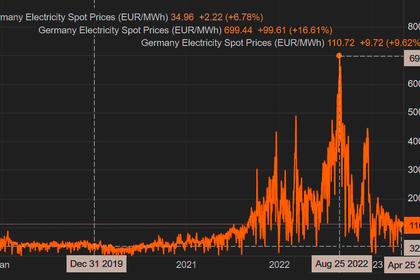
2023, April, 28, 06:40:00
GLOBAL ENERGY CHALLENGES CONTINUING
The challenges today are not likely to end anytime soon. Market participants must adapt to the uncertainty, tightness of supply and fluctuating prices.
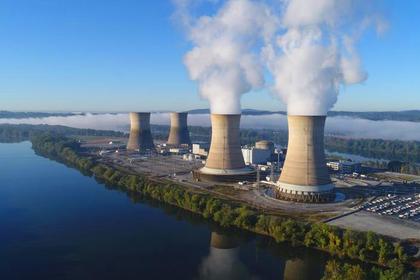
2023, March, 15, 06:55:00
GLOBAL RUSSIAN NUCLEAR POWER
Since the invasion of Ukraine in February 2022, some European countries have started to step away from Russia’s nuclear energy superstore.
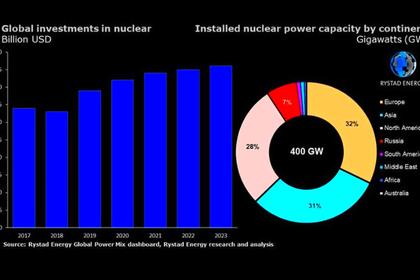
2023, February, 15, 13:45:00
GLOBAL NUCLEAR POWER RISE
Many countries including China and India have developed aggressive nuclear development plans, as have Poland, the Czech Republic, the UK, the Netherlands, and even Ukraine to a lesser extent.
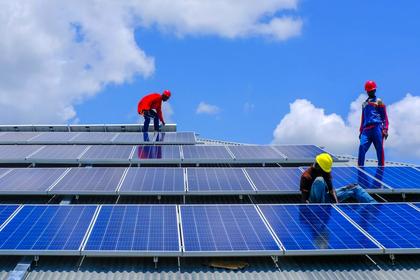
2023, January, 30, 11:30:00
GLOBAL ENERGY TRANSITION FOR PEOPLE
As the world seeks to address climate and biodiversity challenges and move to clean energy solutions for example, these will deliver impacts within the workplace.
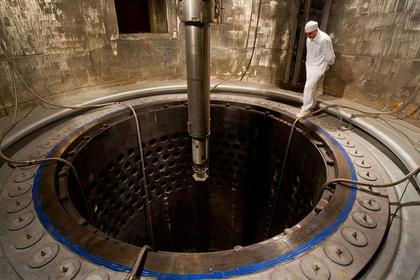
2023, January, 20, 11:10:00
RUSSIAN NUCLEAR IS UNIQUE
“The Russian nuclear industry stands out as a rare – indeed unique – case of a high-technology sector that has not only recovered from the end of the Soviet era and the chaos that followed, but has developed an effective export strategy that has allowed it to prosper today as never before.”
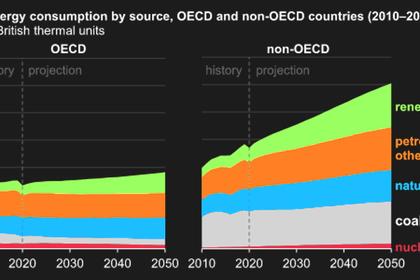
2023, January, 9, 12:20:00
GLOBAL ENERGY TRENDS 2023
Electric utilities are facing a future of increased competition, disruptive technologies, and changing customer demands.
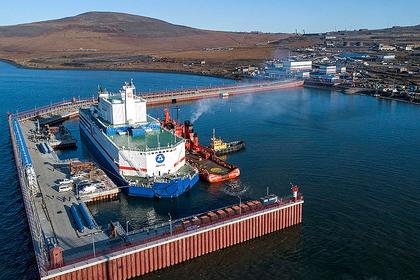
2022, December, 21, 11:45:00
RUSSIAN FLOATING NUCLEAR RITM-200S
The modernised floating power units are intended to deliver a power supply for the Baimskaya Mining and Processing Plant in Chukotka.
All Publications »
Tags:
RUSSIA,
NUCLEAR,
ENERGY TRANSITION





















